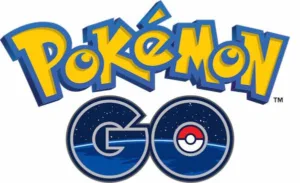Having written about augmented reality (AR) hardware and software for quite some time, I am the first to admit that this topic is widely over praised or over criticized depending on the position of the author. I have often said that AR will not be as successful as some promise in a short period of time, as well as I have said that I strongly believe that AR will be a reality for mankind in the future.

One of the reasons for the wide mood swings of analysts when it comes to AR and also VR is the fact that we know very little about the real effects these technologies will have on people.
So far we have seen some studies suggesting that AR and VR may be helpful in education as well as some professional applications. In the first application, knowledge retention is easy enough to measure, while in the second realm, cost of ownership versus achieved results can be measured in money terms. Very convincing arguments in both cases. But what is with AR gaming? How do you measure any benefits for the user? This is where a new study from James Alex Bonus, Alanna Peebles, Marie-Louise Mares & Irene G. Sarmiento (Communication Arts Department, University of Wisconsin-Madison, Madison, Wisconsin, USA) comes into play.
This study (Look on the Bright Side (of Media Effects):Pokémon Go as a Catalyst for Positive Life Experiences) used the instant success of Pokemon Go to measure how people feel about playing such an AR game and what the positive or negative side effects were.
Please understand that this study was not about the quality of the display and what smartphone / tablet was better than others for this game, it was about how the game was perceived by the users after they had played it for some time. The study was trying to see what positive effects a new medium like AR might have on the users and what potential benefits there could possibly be.
If you want to read the article with all the results, please follow the link above, but be warned you won’t find any display-related words like screens size, resolution, brightness, etc. All the authors talk about is how the users feel while playing the game.
The study was performed by asking active Pokemon GO players to fill out a survey. 399 people participated exactly three weeks after the game’s release. The survey group was predominantly white Caucasian (80%) and college graduates (49%) in the age range from 18-75. So from this perspective, the survey leaves some things to be desired, Nevertheless, the results are somewhat surprising in reflecting a positive attitude among players. Here are some of the results that the study reports: (measured on a scale from 1-5 – 1 = ‘not at all’ and 5 = ‘extremely’)
- Positive effects from playing averaged a mean of 3.15 +- 0.87, while the negative emotions yielded 1.90 +- 0.82.
- Pokémon Go was a) positively related to prior exposure to the Pokémon franchise, and c) positively related to social pressure to play.
- Playing Pokémon Go was a) positively associated with positive affect, and positively associated with c) nostalgia, d) exercise, e) friendship initiation, and f) friendship intensification.
- There was a significant indirect relationship between gameplay and depression via exercise (indirect effect), such that gameplay was associated with more walking, which was associated with lower depression. Additionally, there was a significant indirect relationship between gameplay and resilience via nostalgic reverie (indirect effect), such that gameplay was associated with more frequent reflection on happy memories, which was associated with higher resilience.
In addition the paper does put the results in the context of a theory that positive media experiences are contributing to a more positive outlook on life in general as well as creating personal growth and positive development.
To a certain degree this all sounds wonderful and one could easily put a very positive spin on this, especially if you are in the AR supporters camp. The study does warn about the fact that this study was performed during the height of the Pokemon GO hype.
I also question if there may have been some effect from this hype on the results as well as the question on how a different group may have responded. Don’t forget that Pokemon GO was to a large extent a family affair where parents and children experienced this event together. This in itself could explain some of the positive results.
While the study does offer some insights on how individuals experienced the Pokemon GO experience, it does not answer why the hype died down relatively quickly. Wouldn’t such positive emotions drive people to keep on playing? Enough question to wait for the next AR game phenomenon and ask another group, I think! NH

